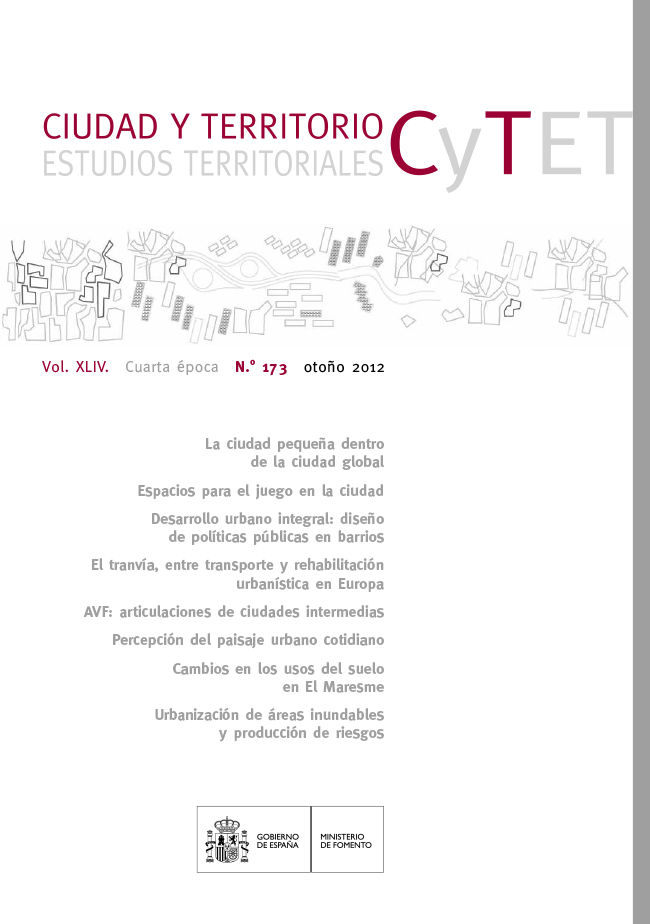URBE LUDENS: Play Space in the City
Keywords:
Ciudad, cultura, juego, arte, espacios públicosAbstract
From the anthropological meaning of ‘game’ in Huizingaand Cadamer studies’, this paper analyzes
some significant paradigms of recreational demonstrations in public spaces in the city, from the
arenas and gyms in the old city to new leisure areas in the modern city. The aim of this paper is to
study the ideological and psychological foundations of the creation of recreational spaces and its
connection with different social and artistic sensibilities. Without being exhaustive, the study of
different typologies through these paradigms allows us to reveal some important clues in the
search for innovative solutions that respond to the city contemporary problems. In this sense, the
value of leisure time and proximity to nature in the Greek paideia or criticism of the entertainment
industry and entertainment heir of the baroque or the recovery of the situationist ‘drift’ might be
inspiring to discuss on a new urban paradigm with recreational grounds, which are integrated into
a new concept of city with environmental and sustainability criteria, whose leading role is performed
by the citizens themselves. Active participation and citizens’ initiative are the keys to the new
emerging paradigm in the shape of urban actions or reuse of decayed and derelicted spaces as
recreational spaces.
Downloads
Downloads
Published
How to Cite
Issue
Section
License
Copyright (c) 2012 Angelique Trachana

This work is licensed under a Creative Commons Attribution-NonCommercial-NoDerivatives 4.0 International License.
Considering the provisions of the current legislation on Intellectual Property, and in accordance with them, all authors publishing in CyTET give -in a non-exclusive way and without time limit- to the Ministry of Transport, Mobility and Urban Agenda the rights to disseminate, reproduce, communicate and distribute in any current or future format, on paper or electronic, the original or derived version of their work under a Creative Commons Attribution-NonCommercial-NoDerivative 4.0 license International (CC BY-NC-ND 4.0), as well as to include or assign to third parties the inclusion of its content in national and international indexes, repositories and databases, with reference and recognition in any case of its authorship.
In addition, when sending the work, the author(s) declares that it is an original work in which the sources that have been used are recognized, committing to respect the scientific evidence, to no longer modify the original data and to verify or refute its hypothesis. Author(s) also declare that the essential content of the work has not been previously published nor will it be published in any other publication while it is under evaluation by CyTET; and that it has not been simultaneously sent to another journal.
Authors must sign a Transfer of Rights Form, which will be sent to them from the CyTET Secretariat once the article is accepted for publication.
With the aim of promoting the dissemination of knowledge, CyTET joins the Open Journal Access (OA) movement and delivers all of its content to various national and international indexes, repositories and databases under this protocol; therefore, the submission of a work to be published in the journal presupposes the explicit acceptance by the author of this distribution method.
Authors are encouraged to reproduce and host their work published in CyTET in institutional repositories, web pages, etc. with the intention of contributing to the improvement of the transfer of knowledge and the citation of said works.








 Enlace a CyTET en Linkedin
Enlace a CyTET en Linkedin